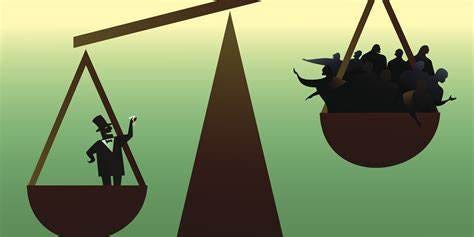Wealth inequality is a hot topic in today's world. But what exactly is it, and why does it matter? Let's break it down.
The Basics
Wealth inequality refers to the uneven distribution of assets (like money, property, and investments) among people in a society. The idea is that the more wealth someone has, the more power they have in society.
A Bit of History
In the past, economists like Ricardo and Marx were very interested in how wealth was distributed. They thought it was crucial to understand how the fruits of our labour were shared among different groups in society.
However, in the late 19th and early 20th centuries, a new way of thinking about economics took over. This new approach, called marginalism, focused more on how prices are set and less on how wealth is distributed.
The Current Approach
Today's mainstream economics often uses something called Marginal Productivity Theory (MPT). This theory suggests that in a free market, everyone gets paid according to their contribution to production. It's presented as a fair and natural system.
The Problem with This Approach
The issue is that MPT doesn't consider the rules and laws that govern who owns what in the first place. These rules can favour the wealthy (like business owners and landlords) over workers and tenants. When this happens, the wealthy tend to get an even larger share of the national income.
Power and Wealth
This is where power comes in. The balance of power between different groups in society can shift how much of the national income each group gets. But mainstream economics often avoids discussing power, seeing it as a political issue rather than an economic one.
The Real World is Messy
In reality, income isn't always clearly defined. The wealthier someone is, the more ways they have to receive 'income' without declaring it as such. This is why tax havens exist. As a result, the gap between income inequality and wealth inequality can grow even wider.
Why Doesn't Economics Address This?
Mainstream economics struggles to examine power because doing so would challenge some of its fundamental assumptions. It's also influenced by ideologies that benefit from free market policies.
A Different View
Some economists, including the author of this piece, believe that most wealth comes from advantages passed down through generations. We argue that wealth inequality is problematic because it gives some people more economic and political power, which they can then pass on to their children.
The Bottom Line
Understanding wealth inequality isn't just about numbers. It's about recognising how wealth shapes power in society, and how this power can be maintained and grown over time. This perspective challenges us to think more critically about the economic systems we live in and how they affect our lives.



